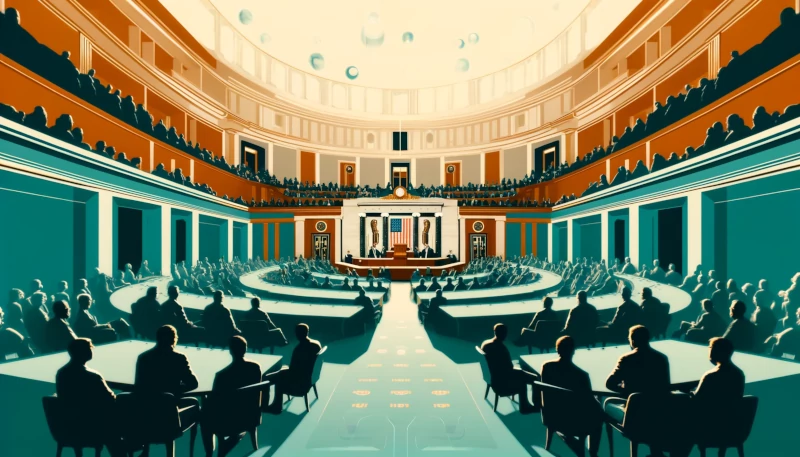The measures discussed in the US Congress also include a ban on the popular Chinese app, along with international supports.
The political debate in the United States intensifies with the announcement of Mike Johnson, Republican Speaker of the House, regarding the imminent vote on a series of important legislative measures. Among these, particular attention is paid to the ban on TikTok in the USA, a move that marks a further step in the technological and commercial confrontation with China.
The legislative proposals are not limited to the issue of TikTok. Significant international aid measures are also expected, with specific packages targeting Israel, Ukraine and Taiwan, including loan agreements for military support. This package of legislation demonstrates the United States’ continued focus on international alliances and global security in a time of escalating tensions.
In addition to the TikTok ban, there will also be discussion about provisions for managing assets seized from Russian oligarchs, a move that aims to strengthen sanctions against Russia in response to its international actions.
These decisions have been widely reported in the US media and are eagerly awaited, given their potential impact both domestically and internationally. The possible ban on TikTok, in particular, raises questions of great importance regarding the regulation of cyberspace and digital security.
We invite readers to share this article or comment below to express their thoughts on America’s new legislative measures and their impact on global politics and digital security. Is it possible to censor such a widespread social network? Is the suspicion that a social network could be an espionage weapon legitimate? Have your say.
Sign up for the newsletter. Stay updated!
We will send you periodical important communications and news about the digital world. You can unsubscribe at any time by clicking the appropriate link at the bottom of the newsletter.


Leave a Reply